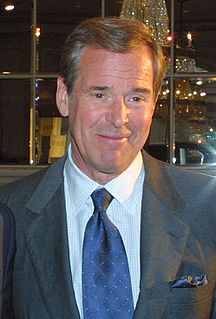A Quote by Walter Lippmann
Here lay the political genius of Franklin Roosevelt: that in his own time he knew what were the questions that had to be answered, even though he himself did not always find the full answer.
Related Quotes
As a writer, politician, scientist, and businessman, [Ben] Franklin had few equals among the educated of his day-though he left school at ten. (...)Boys like Andrew Carnegie who begged his mother not to send him to school and was well on his way to immortality and fortune at the age of thirteen, would be referred today for psychological counseling; Thomas Edison would find himself in Special Ed until his peculiar genius had been sufficiently tamed.
When one teenager dying of cystic fibrosis asked me, 'Why am I different?' I answered, 'Tony, because it makes you beautiful.' He loved my answer because he knew full well how much he had done for the world and that he would be immortal through his love and the fund raising of those who knew him hoping to find a cure for cystic fibrosis.
I feel very strongly that I am under the influence of things or questions which were left incomplete and unanswered by my parents and grandparents and more distant ancestors. It often seems as if there were an impersonal karma within a family which is passed on from parents to children. It has always seemed to me that I had to answer questions which fate had posed to my forefathers, and which had not yet been answered, or as if I had to complete, or perhaps continue, things which previous ages had left unfinished.
A President Roosevelt comes only once in a century. I believe God knew and does know of the need of the world at this moment. I don't believe President Roosevelt is an accident in time, or that it is an accident that he is President for a third time. I believe that Franklin D. Roosevelt truly is the voice of liberty in the world.
When Levin thought what he was and what he was living for, he could find no answer to the questions and was reduced to despair; but when he left off questioning himself about it, it seemed as though he knew both what he was and what he was living for, acting and living resolutely and without hesitation.
Commonplace people have an answer for everything and nothing ever surprises them. They try to look as though they knew what you were about to say better than you did yourself, and when it is their turn to speak, they repeat with great assurance something that they have heard other people say, as though it were their own invention.

































